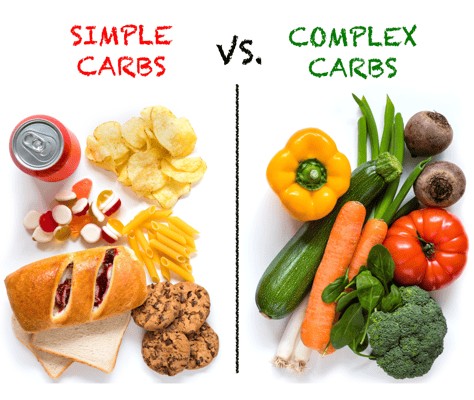Eating the Right Carbohydrates
Carbohydrates play a crucial role in supporting overall health and well-being, acting as a primary source of energy for the body. Understanding the significance of consuming the right carbohydrates is essential for maintaining optimal health and vitality.
Carbohydrates play a crucial role in supporting overall health and well-being, acting as a primary source of energy for the body. Understanding the significance of consuming the right carbohydrates is essential for maintaining optimal health and vitality.
1. Energy Fuel:
Carbohydrates are the body's preferred source of energy, providing fuel for vital functions and daily activities. The right carbohydrates, such as complex carbs found in whole grains and vegetables, release energy gradually, sustaining energy levels throughout the day.
2. Brain Function:
Glucose, derived from carbohydrates, is vital for proper brain function. Consuming the right carbohydrates ensures a steady supply of glucose to the brain, supporting cognitive performance and concentration.
3. Fibre for Digestive Health:
The right carbohydrates, particularly those rich in fibre, promote digestive health. Fibre aids in maintaining a healthy digestive system, preventing constipation, and supporting gut microbiota.
4. Weight Management:
Opting for complex carbohydrates helps in weight management. These carbs contribute to a feeling of fullness, reducing the likelihood of overeating and supporting weight control.
5. Nutrient Intake:
The right carbohydrates, including whole grains, fruits, and vegetables, are rich in essential nutrients, vitamins, and minerals. They contribute to overall nutritional intake, supporting various bodily functions.
Carbohydrates are a vital part of a balanced diet, but not all carbs are created equal. Let's explore the top ten examples of both good and bad carbohydrates to help you make informed dietary choices.
Good Carbohydrates:
Whole Grains: Rich in fibre and nutrients, whole grains like quinoa, brown rice, and oats offer sustained energy release.
Legumes: Beans, lentils, and chickpeas are excellent sources of complex carbohydrates, fibre, and protein, supporting digestive health.
Fruits: Berries, apples, and citrus fruits provide natural sugars along with fibre and essential vitamins.
Vegetables: Non-starchy vegetables like broccoli, spinach, and kale are low in calories, high in fibre, and rich in nutrients.
Sweet Potatoes: Packed with vitamins, fibre, and a lower glycemic index, sweet potatoes are a nutritious carbohydrate choice.
Quinoa: A complete protein source, quinoa is a versatile grain that provides complex carbohydrates.
Nuts and Seeds: Almonds, chia seeds, and flaxseeds offer healthy fats, protein, and carbohydrates, promoting satiety.
Greek Yoghourt: High in protein and lower in sugars, Greek yoghourt is a favourable carbohydrate-rich dairy option.
Oatmeal: Providing a hearty dose of fibre, oatmeal supports heart health and helps regulate blood sugar.
Popcorn: When prepared without excessive butter and salt, plain popcorn is a whole-grain snack with fibre.
Bad Carbohydrates:
Refined Grains: White bread, white rice, and pastries lack fibre and essential nutrients, causing rapid blood sugar spikes.
Sugary Beverages: Sodas and sweetened drinks contribute empty calories and lead to potential health issues.
Processed Snacks: Chips, cookies, and candies often contain refined sugars and unhealthy fats, providing little nutritional value.
Cakes and Pastries: High in added sugars and trans fats, these treats can contribute to weight gain and health issues.
Sugary Cereals: Many breakfast cereals are high in added sugars, lacking the necessary nutrients found in whole-grain options.
Flavoured Yoghurt: Often loaded with added sugars, flavoured yoghurt can undermine the health benefits of this dairy product.
Candy: A high-sugar, low-nutrient option that can contribute to weight gain and dental issues.
Sweetened Condiments: Sauces and dressings with added sugars can turn a healthy meal into a high-calorie, low-nutrient one.
Energy Drinks: Loaded with sugars and often high in caffeine, energy drinks provide a quick energy boost but can lead to crashes and other health concerns.
French Fries and Potato Chips: Deep-fried and often loaded with unhealthy fats, these snacks contribute to unhealthy weight gain.
Remember, balance is key. Incorporating more good carbohydrates into your diet while limiting the intake of bad carbohydrates can contribute to a healthier and more balanced lifestyle. Always consult with a healthcare professional or nutritionist for personalised dietary advice. By making informed choices and incorporating a variety of nutrient-dense carbohydrates into your diet, you can harness the numerous benefits they offer for a vibrant and healthy life.


